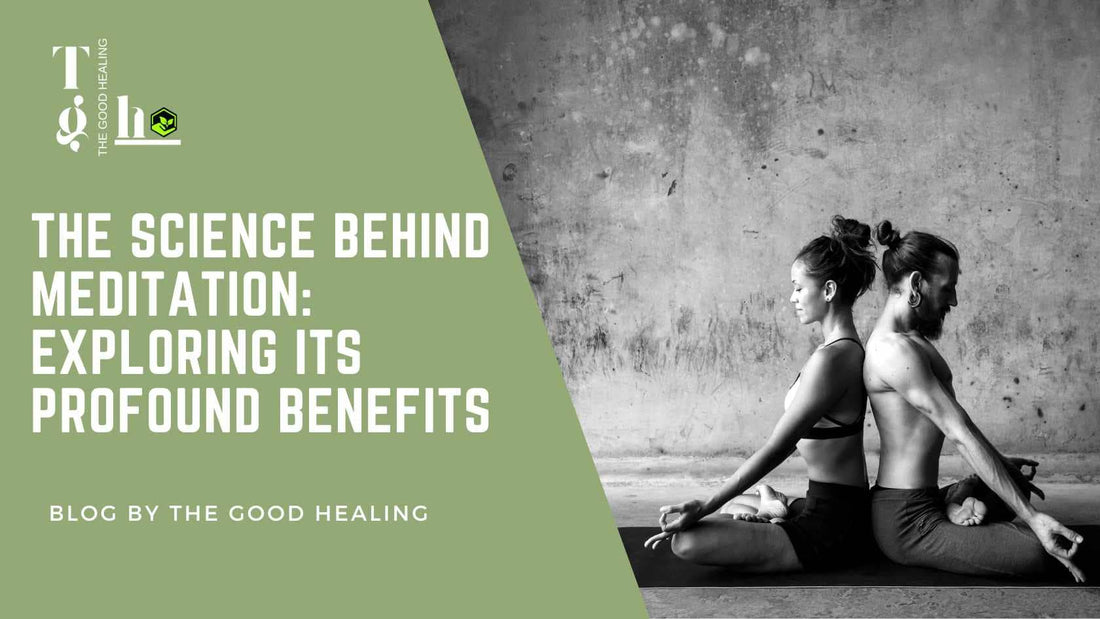In today's fast-paced world, the practice of meditation has emerged as a powerful tool for promoting overall well-being. With its roots deeply embedded in ancient traditions, meditation is now gaining recognition for its scientifically proven benefits. In this blog post, we'll delve into the science behind meditation and explore its profound effects on both the mind and body.

Understanding Meditation: Meditation is a practice that involves training the mind to focus and redirect thoughts. It encompasses various techniques, including mindfulness meditation, loving-kindness meditation, and transcendental meditation. While the specific methods may vary, the overarching goal remains the same: to cultivate a state of inner peace and awareness.
The Science of Meditation: Numerous scientific studies have shed light on the tangible benefits of meditation. For instance, research has shown that regular meditation can lead to structural changes in the brain, including increased grey matter density in areas associated with emotion regulation and decreased activity in the default mode network, which is linked to mind-wandering and self-referential thoughts.
Physical Health Benefits: Meditation is not only beneficial for the mind but also for the body. Studies have demonstrated that it can lower blood pressure, boost immune function, and improve pain management. By inducing a state of relaxation, meditation helps reduce the production of stress hormones and promotes overall cardiovascular health.
Mental Health Benefits: One of the most well-documented benefits of meditation is its positive impact on mental health. Research suggests that meditation can alleviate symptoms of stress, anxiety, and depression, while also enhancing mood and emotional regulation. By fostering a sense of calm and clarity, meditation empowers individuals to navigate life's challenges with greater resilience and equanimity.
Cognitive Benefits: In addition to its effects on mental and emotional well-being, meditation has been shown to enhance cognitive function. Studies indicate that regular meditation practice can improve attention, memory, and executive function. By sharpening cognitive abilities, meditation helps individuals stay focused, alert, and mentally agile.
Practical Tips for Starting a Meditation Practice: If you're new to meditation, getting started can seem daunting. However, it's essential to remember that meditation is a skill that can be developed over time. Here are some practical tips to help you begin your meditation journey:
- Find a quiet and comfortable space where you won't be disturbed.
- Start with short sessions, gradually increasing the duration as you build your practice.
- Experiment with different meditation techniques to find what resonates with you.
- Be patient and compassionate with yourself, recognizing that meditation is a practice of presence, not perfection.
Countless individuals have experienced transformative benefits from incorporating meditation into their lives. From reducing stress and anxiety to improving overall well-being, the stories of personal growth and healing are truly inspiring.
In conclusion, the science behind meditation reveals its remarkable capacity to promote holistic health and wellness. By integrating meditation into our daily lives, we can cultivate greater resilience, clarity, and compassion, ultimately fostering a deeper sense of connection with ourselves and the world around us. Whether you're seeking relief from stress, a boost in mental clarity, or simply a moment of peace amidst the chaos, meditation offers a pathway to profound transformation. So why not take a moment to pause, breathe, and embark on this transformative journey today?

